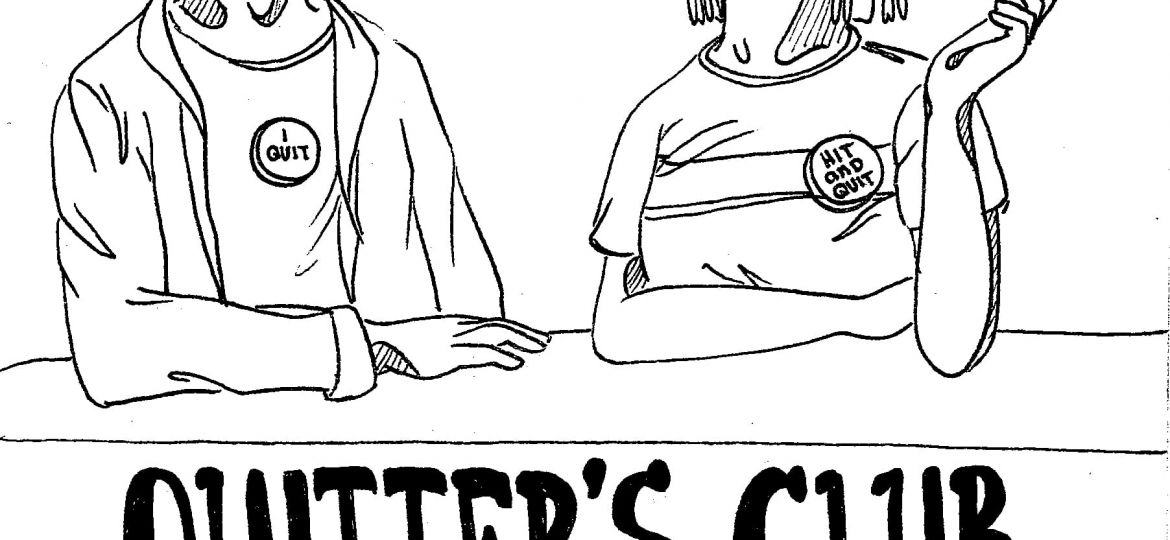
When I was a kid, I was constantly called a quitter. I was the sort to beg my mom to sign me up for some extracurricular activities – gymnastics, swimming, dance – and then give up on them after a couple of months. I got a lot of flak for this and my work ethic was called into question more than once – “How are you going to hold down a job someday if you can’t stick to something you aren’t good at right away?”
As a result, I think I developed a shame-filled complex when it came to giving up on things that I didn’t really feel comfortable doing. At college, I’ve stayed in classes that I would rather have dropped, I’ve recommitted myself to cocurriculars after entire semesters of dissatisfying participation and I’ve even pursued friendships that tore away at my self-worth all in the name of “stick-to-it-iveness.”
A few years back, the Washington Post profiled a D.C.-based “Quitters Club” in which members gathered to discuss giving up on projects, careers and dreams. In a culture that prides itself on grit and reliability, these folks feel that there are not enough safe spaces in which people can talk frankly about the desire to give up on work and other activities that don’t feel worthwhile to them anymore.
When I first read this piece, I felt a gut-punch of indignance. “How could they celebrate flakiness and unreliability?” I wondered almost angrily. Upon reflection, though, I could tell this was the kind of message I needed to hear in the days of recreation center dance classes and swimming lessons tossed aside. These people didn’t just get bored of their jobs or their side projects and decide to quit on the spur of the moment. They’d agonized over the decision for months, years or even decades in the case of some older Quitters. And, if they had decided to quit out of boredom, who was I to judge? Why do we feel so compelled to finish the things we start when those same things make us positively despondent?
The way I see it, the ideology which leads many Americans to write off those who walk away from projects as flakes or quitters stems from a concept as dear to the United States as apple pie or baseball: that of the “self-made person” who overcame adversity to achieve the “American Dream.” To many of us living within this culture, it feels like an affront to hear someone admit that something they once pursued with enthusiasm turned out to be unfulfilling and that they want to give it up.
That simply isn’t part of the canon here in the global West. Yet, given the popularity of the Quitters Club and the pace in which others like it popped up around the country, I’d say there exists a largely unmet need for comfortable quitting.
St. Olaf sure could use a Quitters Club. How might the lives of students here change if we carved out a space within which folks could own up to their desire to put something on the backburner? I’m sure I’m not the only one who’s not only heard the anecdote comparing St. Olaf students to ducks in a pond – gliding gracefully across the surface but paddling furiously beneath the water – but who’s also embodied it in my own career here.
Many of us feel like we’re drowning beneath activities that crush our optimism and take classes (or even commit to entire majors and concentrations!) that suck the joy out of our college careers simply because we feel we ought to partake in them. I’m not sure I would call St. Olaf a cutthroat school, so it seems to me that it’s social expectation alone which drives us to the point of misery doing things we really have no interest in doing.
I don’t believe that the existence of a Quitters Club would necessarily eradicate that culture of overcommitment, but it just might be the first step in rebuilding a community without room for shame, judgement or guilt about letting go of an obligation that just doesn’t feel right.
Alexa Johanningmeier ’21 (johann2@stolaf.edu) is from Saint Louis, Mo. Her major is undecided.









